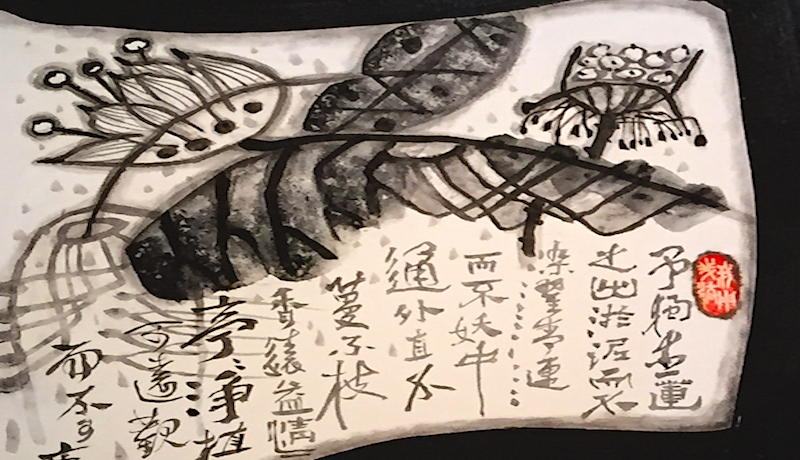-
 NCC’s plan to
NCC’s plan to
amend broadcasting bills -
 THE GLOBAL REACH YOU NEED
THE GLOBAL REACH YOU NEED
FROM THE LOCAL FIRM YOU TRUSTTHE GLOBAL REACH YOU NEED
FROM THE LOCAL FIRM YOU TRUST -
 Drone regulation
Drone regulation
to be tightened
by cybersecurity review -
 Taiwan to launch
Taiwan to launch
data protection commission -
 How are crypto assets
How are crypto assets
regulated in Taiwan? -
 Broadcasting regulations
Broadcasting regulations
and crypto ads:
restrictions on crypto ads
in Taiwan -
 What is new in 5G?
What is new in 5G?
2023 updates -
 What’s new in 5G?
What’s new in 5G? -
 MOTC plans priority of
MOTC plans priority of
spectrum allocation for
beyond 5G satellite
communication -
 MODA releases spectrum
MODA releases spectrum
for next generation
satellite communication -
 Court declares
Court declares
secondary use of medical
records unconstitutional -
 Digital Intermediary
Digital Intermediary
Services Act draft
put on hold -
 NCC takes action on
NCC takes action on
illegal import and sale of
Chinese smartphones and
RF devices -
 NCC invites consultation
NCC invites consultation
on draft regulation of
5G vertical application network -
 Guidelines finalised for
Guidelines finalised for
application of
LEO satellite services -
 NCC plans to
NCC plans to
tighten OTT TV services -
 Telecoms M&A
Telecoms M&A
accelerates competition
on frequency bands -
 NCC confirms spectrum added
NCC confirms spectrum added
for fixed satellite communication -
 TFTC releases white paper
TFTC releases white paper
on digital platform market -
 Prosecutors discover way
Prosecutors discover way
to stop cable theft -
 Will a further 5G spectrum auction
Will a further 5G spectrum auction
be needed in 2022? -
 NCC warns of privacy threat
NCC warns of privacy threat
planted in
Xiaomi phones
Updates

NCC’s plan to amend broadcasting bills
After much hesitation, the National Communications Commission (NCC) recently revealed its preliminary legislative proposal of 2023. The proposal aims to amend the existing: *Radio and Television Act; *Cable Radio and Television Act; and *Satellite Broadcasting Act. While the regulation concerning over-the-top (OTT) television (TV) is also mentioned in the proposed

Drone regulation to be tightened by cybersecurity ...
The Civil Aeronautics Administration (CAA) is planning to tighten drone regulation by carrying out a full review of cybersecurity requirements amid cross-ministry collaboration ordered by the Cabinet. This review involves: *the Ministry of Economic Affairs on product inspection;*the Ministry of Digital Affairs (MODA) on cybersecurity certication; and*the National Communications

Taiwan to launch data protection commission
On 9 February 2023, the Executive Yuan (the Cabinet) conrmed that the government will create, no later than August 2024, a data protection commission, which will be a national independent authority responsible for upholding the fundamental right of individuals to have their personal data protected. Background In Asia, Taiwan

How are crypto assets regulated in Taiwan?
In Taiwan, there is no domestic legislation that directly applies to crypto assets, although operations using cryptocurrencies may fall under existing laws – specically, compliance requirements relating to anti-money laundering (AML). The Financial Supervisory Commission (FSC) has stated that bitcoin is explicitly not within its authority “due to [the] lack

NCC’s plan to amend broadcasting bills
After much hesitation, the National Communications Commission (NCC) recently revealed its preliminary legislative proposal of 2023. The proposal aims to amend the existing: *Radio and Television Act; *Cable Radio and Television Act; and *Satellite Broadcasting Act. While the regulation concerning over-the-top (OTT) television (TV) is also mentioned in the proposed

Drone regulation to be tightened by cybersecurity ...
The Civil Aeronautics Administration (CAA) is planning to tighten drone regulation by carrying out a full review of cybersecurity requirements amid cross-ministry collaboration ordered by the Cabinet. This review involves: *the Ministry of Economic Affairs on product inspection;*the Ministry of Digital Affairs (MODA) on cybersecurity certication; and*the National Communications

Taiwan to launch data protection commission
On 9 February 2023, the Executive Yuan (the Cabinet) conrmed that the government will create, no later than August 2024, a data protection commission, which will be a national independent authority responsible for upholding the fundamental right of individuals to have their personal data protected. Background In Asia, Taiwan

How are crypto assets regulated in Taiwan?
In Taiwan, there is no domestic legislation that directly applies to crypto assets, although operations using cryptocurrencies may fall under existing laws – specically, compliance requirements relating to anti-money laundering (AML). The Financial Supervisory Commission (FSC) has stated that bitcoin is explicitly not within its authority “due to [the] lack

